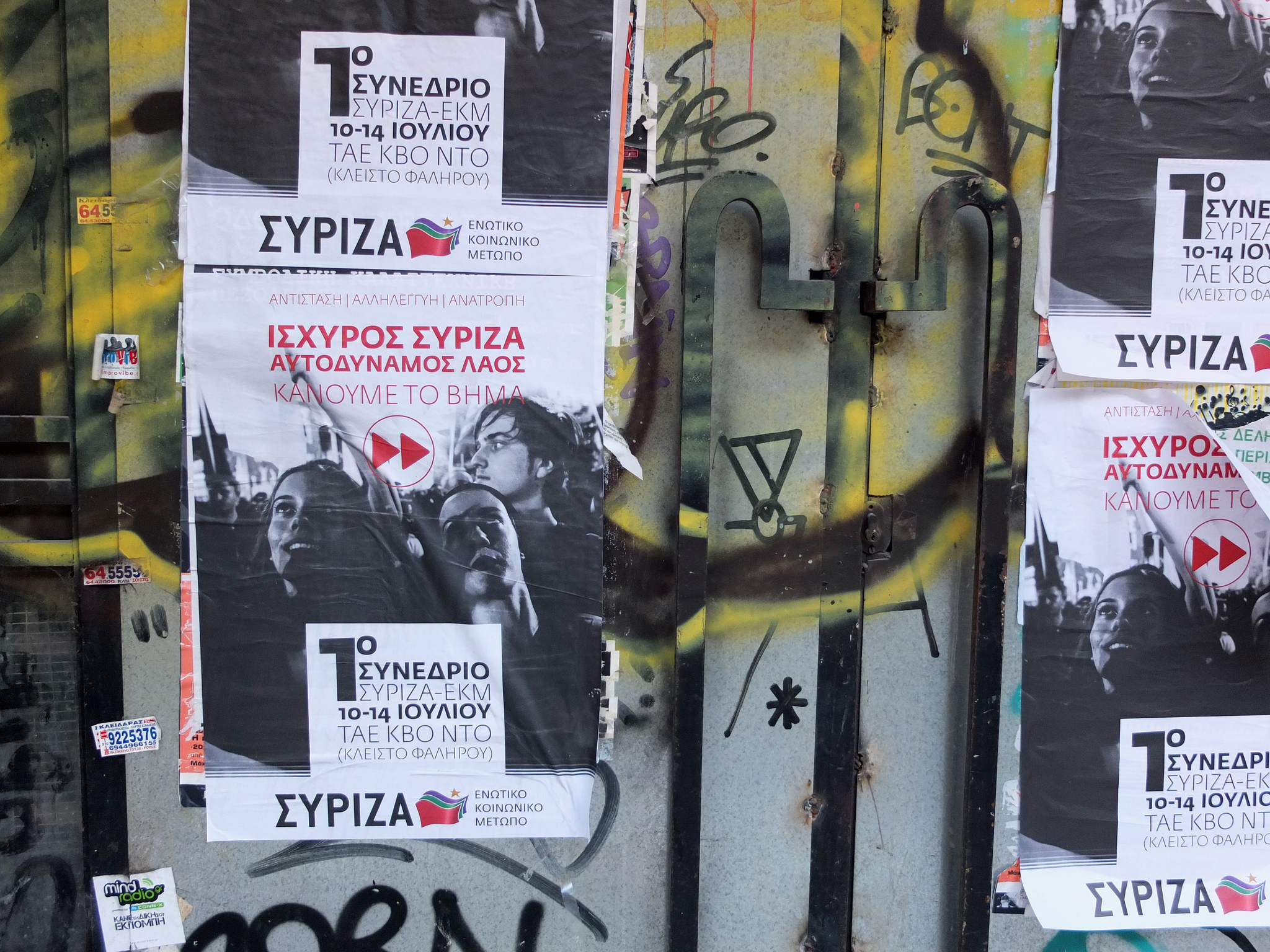Greece shows there’s no going back to the ‘before crisis’ era of electoral politics
by Will Horner
17 April 2015

The economic crisis has produced a political crisis too. Across Europe traditional political parties of the left- and right-of-centre are seeing their support evaporate and new voices on both the left and right are seeing more and more popular support. In Spain, the newcomer Podemos is knocking on the doors of government, remarkable considering the party has barely existed a year. The next government of France could well be the far-right Front National. And in the UK support for Labour and Tory is at its lowest since 1922. But nowhere is this trend clearer than Greece.
“My granddad voted Golden Dawn in 2012,” Mary Nikolopoulos, an Athenian student, tells me. “He said they were the only party who would fight for Greeks and against the Troika.” However, Mary’s dad voted for Syriza, not for ideological reasons but to force out New Democracy. And who did Mary vote for? Antarsya, Greece’s most radical left party, which is calling for immediate unilateral default and the nationalisation of Greece’s major industries – including the banks – without compensation.
Mary’s family are typical. Of humble origins they did well in Greece’s boom years in the late 1990s and early 2000s. Mary’s dad, Petros, worked in construction, did well from the building boom, but since the crisis has been a taxi driver in Athens. Construction projects have dried up lately.
Mary uses the term BC, or ‘before crisis’, to describe how Greeks talk about their careers. For many Greeks the necessity of making a living has meant they’ve taken on new jobs: manual work, low-paid, low-skilled. Yet they remain firmly attached to their ‘before crisis’ professions. “Petros means ‘stone’ in Greek,” he tells me proudly. Building houses is almost his middle name.
It’s this typical Greek family which represents the fluctuating and mysterious hinterland of the Greek voter. A family on a class boundary, often with traditional and religious values and a full range of ages. The young: radical, hopeful. The parents: concerned for the future, nostalgic for the past. The older generation: often reactionary, patriotic, and resentful of the suffering inflicted on Greece. Which is how one family can contain voters which span Greece’s political spectrum from the radical anti-capitalist left, to the fascist xenophobic right, and all colours in between.
In this hinterland votes could switch easily between the extremes of left and right. A Golden Dawn voter could switch to Syriza, if they thought it was the party to take the fight to Brussels. The voters Syriza won in January could abandon the party in favour of the far right if it is deemed to capitulate in the face of creditors. Otherwise, political uncertainty could cause voters to return to the tried and tested parties of the centre. PASOK seem completely finished as a party, but New Democracy have maintained an established base of support, largely through fear and scare-mongering, and preying on people’s worries and hopes for the future.
While it appears Syriza has become an established player on the political scene, this first term in government will be make or break. If it doesn’t balance the varied and often contradictory wills of its supporters, Syriza could be abandoned or split into two or more parties. It is families like Mary’s that Syriza’s future could depend on. If it doesn’t make life better in a meaningful way, voters like Petros could reject them. If it stands up for ordinary Greeks and comes good on its radical pledges, its support amongst the young – who have often complained that Syriza is just the new PASOK – will be cemented.
Similarly, in spite of the crackdown on the party and a major upcoming criminal trial of its leadership, Golden Dawn has not gone away. If Syriza fails in its fight against the creditors the mantle it has won – champion of the Greek people against the power of Brussels – will pass to Golden Dawn. And if Golden Dawn comes away from the upcoming trial with enough acquittals – the prospect of a guilty verdict currently far from certain – then the defendants will be vindicated in the eyes of many Greeks, and Golden Dawn’s support could well begin to rise again.
Greece is just the blueprint for what is going on across Europe. In what seems like the blink of an eye, parties like PASOK – a defining force in Greek politics since the Junta – whose position seemed unassailable just a few years ago, have all but vanished. Meanwhile, the rises of Syriza and Golden Dawn bring both hope and fear. Parties and voters in Europe should take note. The mundane predictability of general elections – the lesser-of-two evils, ‘blue or red’ choice – belongs to the ‘before crisis’ era.